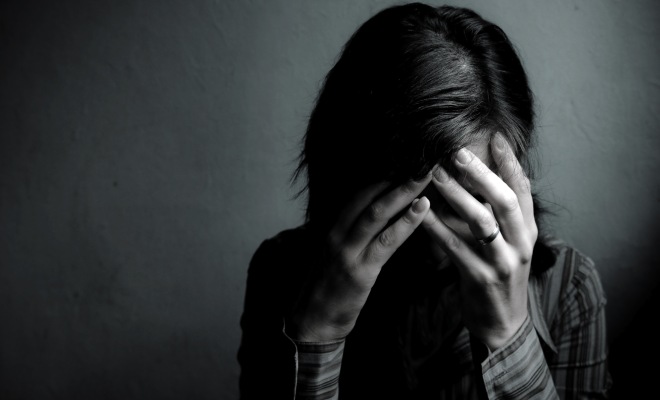For anyone who has ever been debilitated by severe depression, there is nothing more frightening than the feeling that you’re relapsing into another episode. We chalk up the first few days of angst to a bad stretch and hope it gets better from there. But by the time we’ve hit six weeks of crying spells and the kind of anxiety that steals our appetite, there’s usually some panic that we are headed into the Black Hole of Depression yet again.
All of us want so badly to be cured and to find the magical remedy that will make depression and anxiety disappear forever, whether that be a medication combination or a mix of natural therapies. When we find that what we’re doing isn’t enough to keep us immune to the setbacks that often happen with chronic depression, it can be so incredibly frustrating, discouraging, and maddening. It’s especially scary when the tools that once worked for us during past depressive episodes are no longer effective or cause other problems, and we’re forced to figure this thing out all over again, feeling around in the darkness for sources of light and hope — not knowing if what we hold in our hands is a flashlight or a mouse trap.
Relapsed? You’re Not Alone
In this blog, I try to include all kinds of tips and suggestions for living with depression and anxiety that I’ve gleaned from research or from my own experience. I want to be a source of encouragement for you and to inspire creative ways of tackling an illness. But I realize what helps the reader most is to know that he or she is not alone. When I hear from you, your messages most often say thank you for being real, for admitting that I don’t have sanity figured out, and that I’m merely a companion on the road with you, trying to do my best to reach a point where I’m doing more living and less coping.
In the spirit of that honesty, let me say that I’ve been really struggling for the last few weeks, and it’s made me feel more in touch with the exasperating efforts of so many of you to stay sane.Sometimes the act of getting up in the morning (if you can sleep, that is) and putting on your shoes, trying to tackle another day when you feel so defeated, and so completely dead to the world, is the most beautiful act of courage there is. Sometimes the agreement to hang around for another day on this earth despite the raw pain inside is a warrior’s act of bravery and integrity.
I hate relapse. There is nothing more unsettling to my core than the first few weeks that I can’t restrain my crying — especially in public places — and when simple decisions that I have to make in a grocery store between two types of brands of yogurt can render me disabled. I detest the painful ruminations that play over and over again in my brain, even as I try like hell to practice mindfulness techniques and stay in the moment. I abhor lying awake at night, knowing that mysleeplessness will cause more tears the next day. And I loathe that feeling of being trapped in this world — with no exit ramp available — which stalks me throughout the day and night.
But resisting and running from the relapse only makes things worse. I’m learning with each depression setback that I must lean into it — that I can spare myself some of the suffering attached to it if I simply let it be. It’s important to identify any triggers that may have caused it, to make amendments wherever possible, and to get the necessary blood work done or to check in with a physician about certain biochemical changes in your body that may be causing it. In my case, there were lots of those. But I keep on learning the same difficult message in the midst of relapse: that by wanting things to be different, I add to my pain. Conversely, when I can let go of that person I wish I were, the functioning body I so desperately want, and the reality that I want to be mine — when I can accept the very painful moment or hour or day for what it is, I can experience a bit of calm within the anguish.
Painful Lessons I’ve Learned From Depression Relapses
What has consoled me when I begin to panic and let fear drive my emotions is to remember that setbacks are not permanent conditions. Relapses don’t last into infinity. The perspective I have in the midst of my intense struggle insists that I will feel this way forever. But my track record for getting better is 100 percent. So is yours. Even within the worst hours of my relapses are found moments where the pain is less intense, and where I can catch my breath and get ready for the next round of contractions. If I analyze the discomfort, I will find that it isn’t solid, and that there are holes of stillness I can look forward to — that I can attach myself to like buoys in the waves of distress.
Relapse teaches me over and over again that life isn’t linear and often can’t fit into a neat outline. As hard as we try to control all the aspects of our mental health, those of us who’ve suffered the beast of depression in a chronic way will most likely run into relapse more than once in our lives. These setbacks, as painful as they are, teach us invaluable lessons like how to accept messiness, frustration, and ambiguity with grace.
They teach us, like Gilda Radner once wrote, that “some poems don’t rhyme, and some stories don’t have a clear beginning, middle, and end” … that “life is about not knowing, having to change, taking the moment and making the best of it, without knowing what’s going to happen next.”




